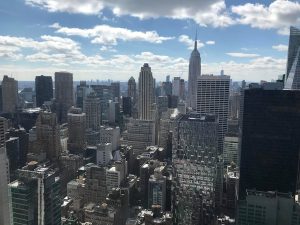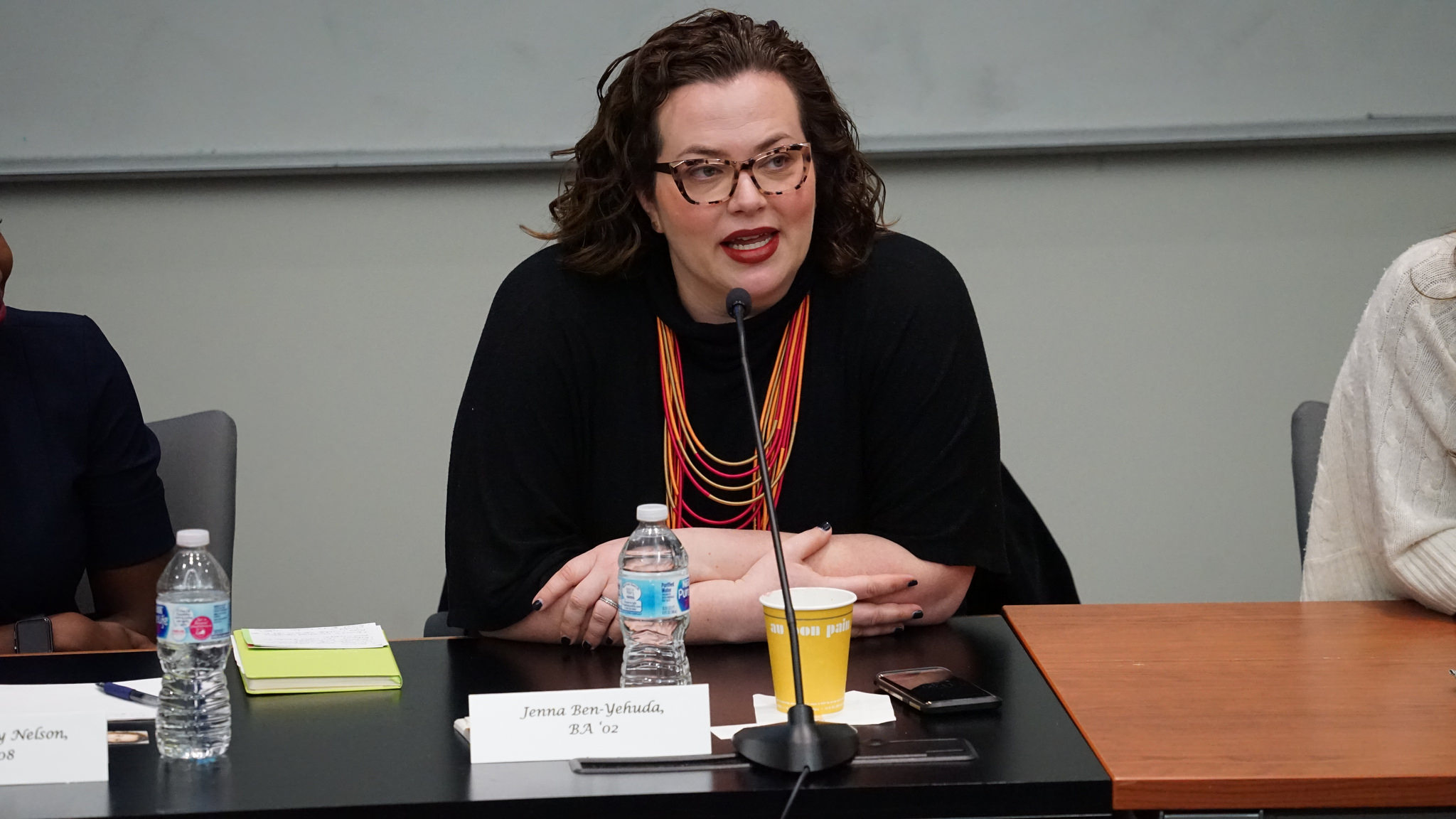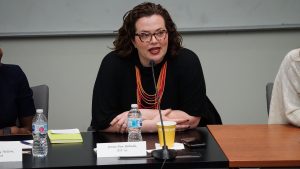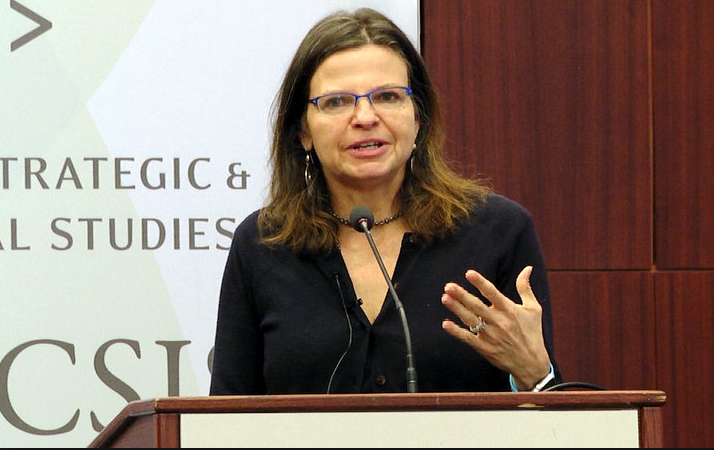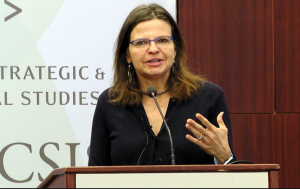To get the inside scoop on New York’s vast career options, 16 Elliott students recently spent three days in the Big Apple to visit major employers and hear about the personal career journeys of Elliott alumni. Held in March, the NYC site visits were a first-of-its-kind event, made possible through Dean’s Fund resources and organized by Elliott’s Office of Graduate Student Services. On the go from dawn past dusk, Elliott MA candidates discovered new ways to make use of their global affairs education. Visits included Deloitte, the UN Population Fund, Citi Public Sector Group, New York’s Federal Reserve Bank, and the Council on Foreign Relations. What were the takeaways? Gathered here are reflections from four students with diverse interests and career plans.
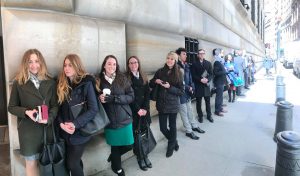

Laura Batista, MA candidate, class of 2018
The trip helped me realize that not all career paths in international affairs are rooted in Washington, DC. The visit to Citi Group meant the most to me. Aside from the relevance of this employer to my current studies, international economic affairs, I also enjoyed listening to career advice from an Elliott alumna with Citi. Her story was inspiring, especially because most people whom I have met in the finance sector have been men with finance degrees. As a young woman venturing into the financial services sector, I felt a degree of respect and admiration and aspire to have a career as fulfilling as hers.
Alexander Bierman, MA candidate, class of 2019
I am in the Security Policy Studies program, concentrating on Asian regional security and cybersecurity. While I do not have a specific dream job in mind, I would like to leverage my knowledge of East Asia and the Chinese language. The NYC site visit trip introduced me to a wide range of career opportunities and affirmed my desire to move to the city one day. Hearing stories of how Elliott alumni’s paths led them to where they are in their careers today was fascinating. Most interesting to me was the visit to the Council on Foreign Relations. The building’s interior is beautiful and reminiscent of an early 20th-century mansion. We talked with the main editor of Foreign Affairs magazine, which I have been reading since high school. Learning about job opportunities at the Council made me certain I will apply for a position there after I graduate.
Grayson Shor, MA candidate, class of 2018
The NYC trip made me realize two things. First, the value of a degree from the Elliott School. This is something each employer we met highlighted multiple times. Second, how lucky I am to be an Elliott student – to be surrounded by federal agencies and organizations of all types from every corner of the globe. While New York is very diverse and exciting city, I realized there is likely no better place in the United States for me, someone who is passionate about international development and public service, to study and intern than DC. In short, learning about opportunities available to me in NYC, left me with a new appreciation for what I have access to in DC.
Trevor Tackett, MA candidate, class of 2018
One thing that stands out in my mind about the trip overall is the quality of connections I made with fellow classmates representing a diversity of Elliott academic programs. I’m thankful for these new friendships and look forward to seeing where their careers take them. Most meaningful to me was our visit to Citi Group. Citi was extremely prepared to present the company in a way that spoke to where I currently find myself – looking for different ways my skillset can impact the global community. One quote I remember from our time at Citi: “We can teach you how to be a banker, but we can’t teach you how to have a globalist mentality.” This told me that if I’m willing to continue working hard and learning, my Elliott School training will open doors to career fields I never previously considered.


